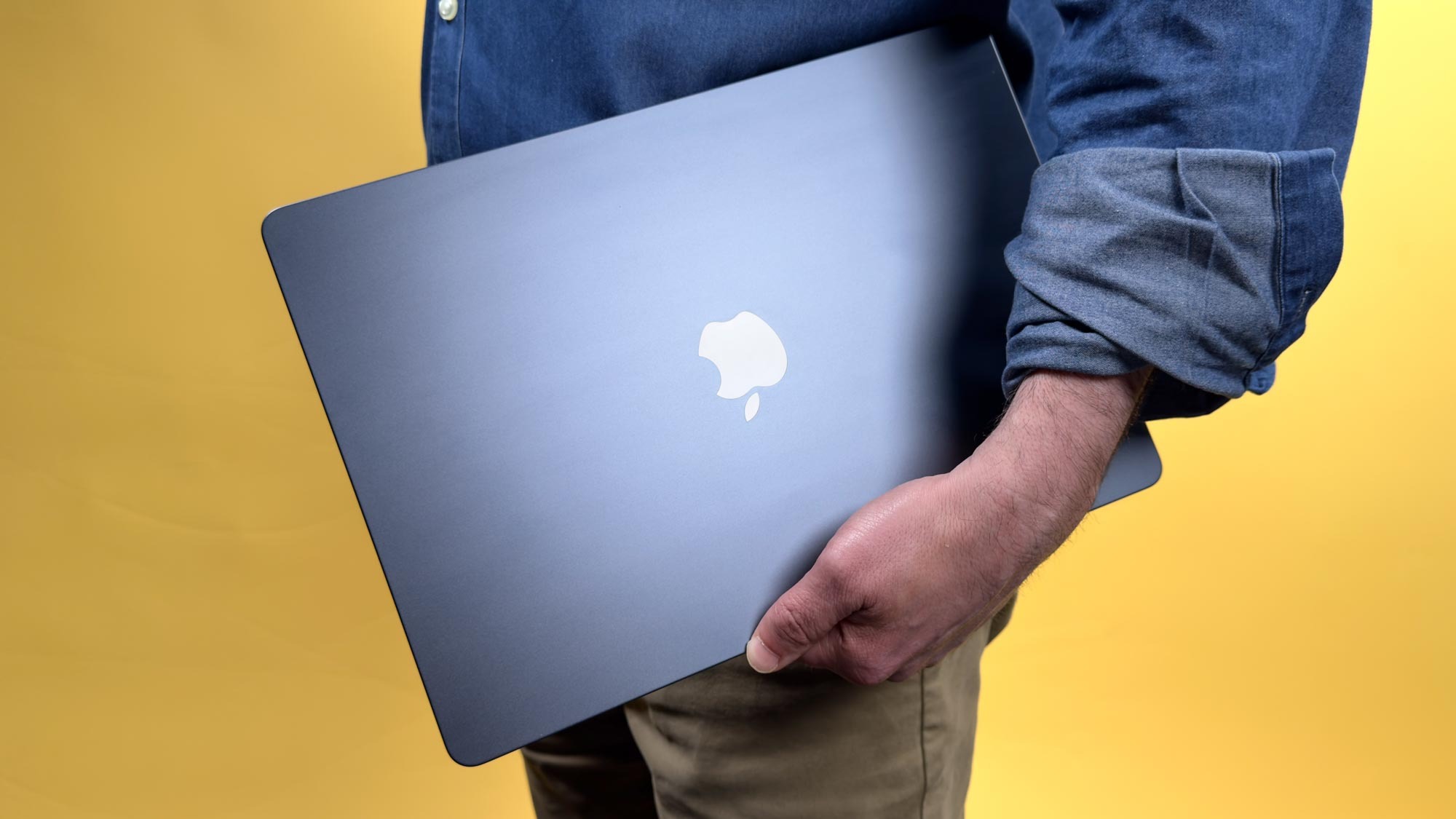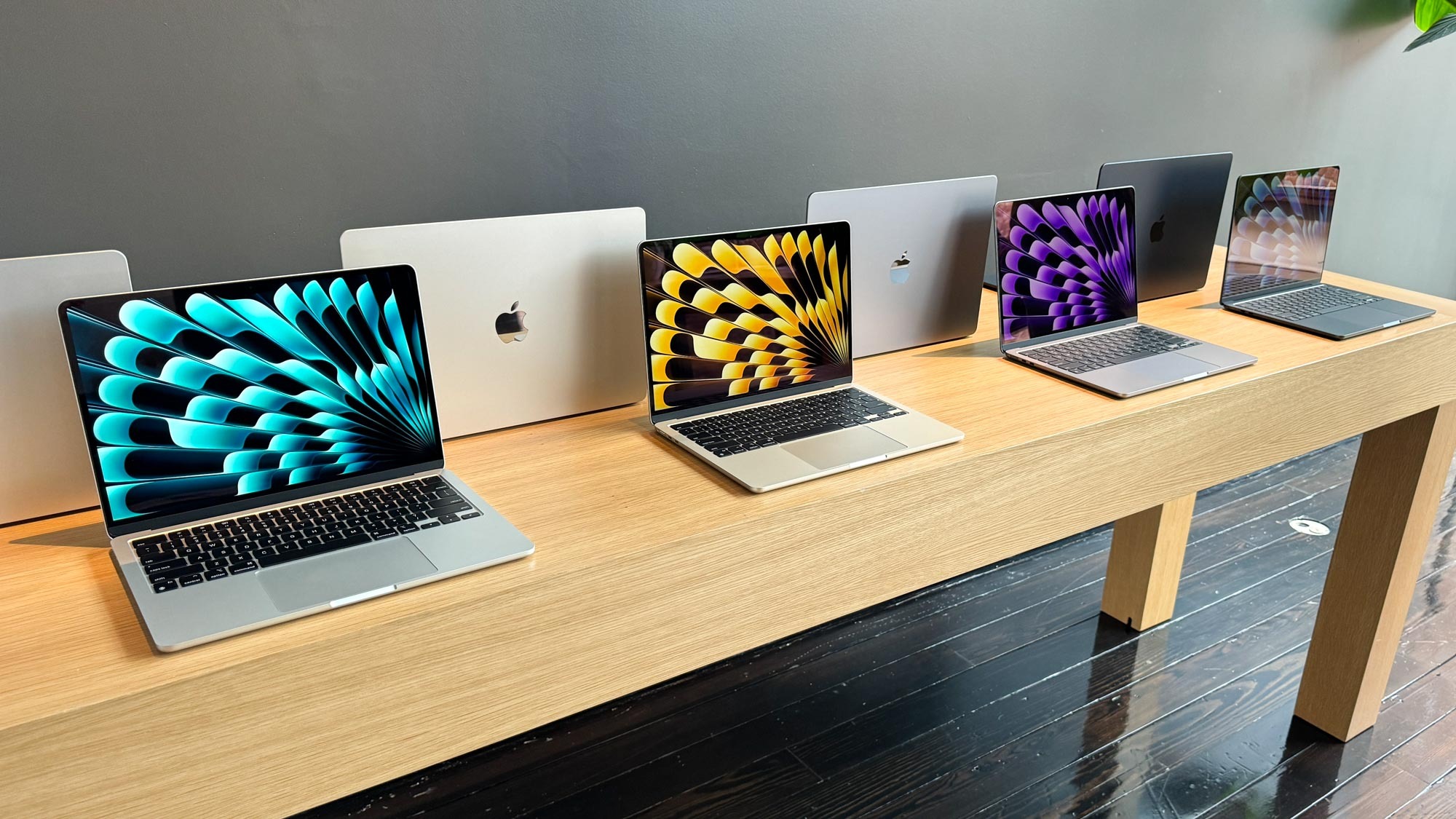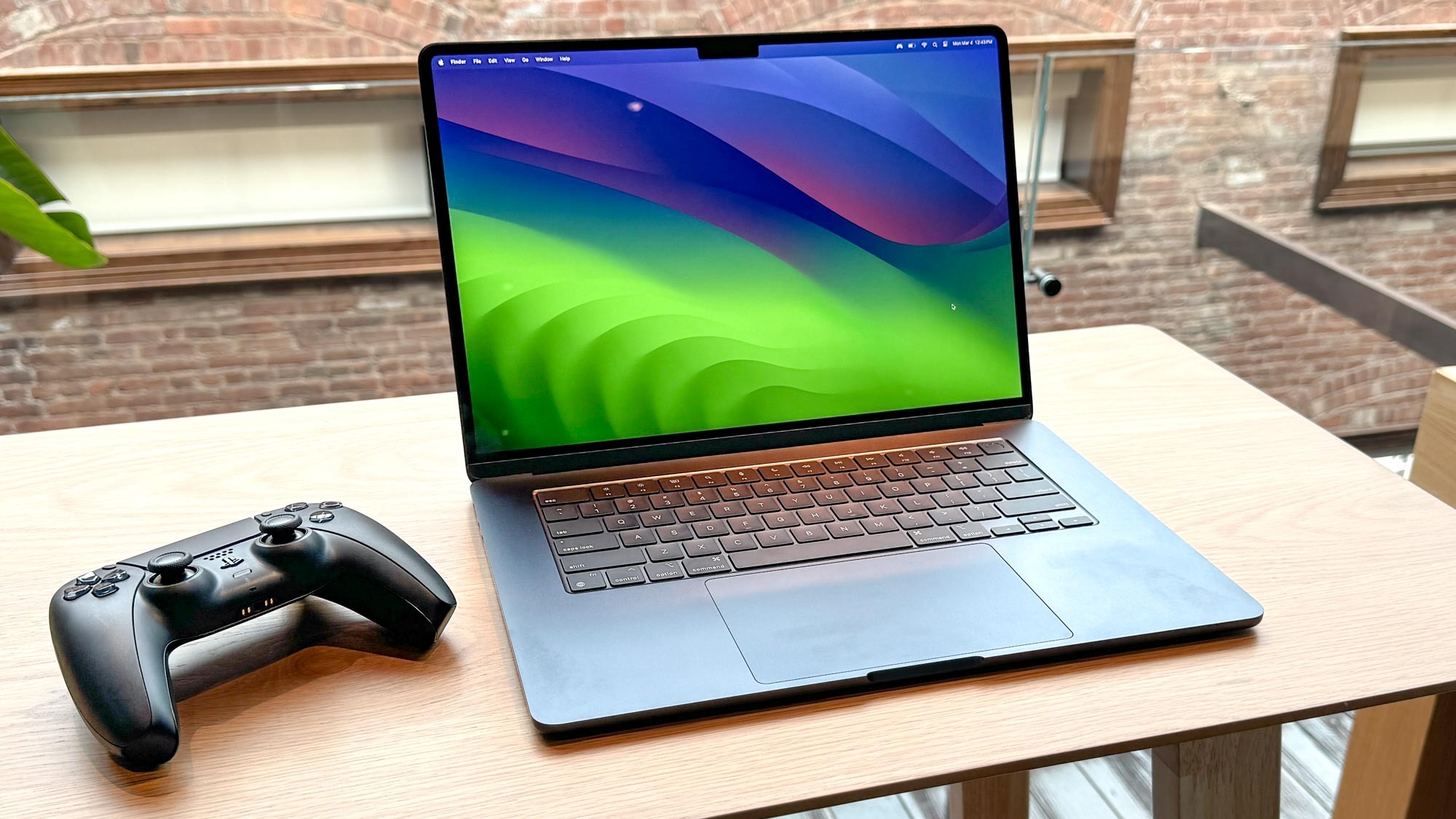MacBook Air M3 benchmarks — here’s how it compares to MacBook Pro and Windows
Results are in from our testing lab, and the M3 Airs are fast!

Apple's new MacBook Air M3 goes on sale tomorrow (March 8), and after spending a few days reviewing both a 13-inch and a 15-inch model we can finally tell you exactly how well it performs in our testing lab.
This is important because it helps us understand exactly how much of a performance boost you're getting when you pay for one of these new Airs, which are powered by the new Apple M3 chip.
This is the third generation of Apple's silicon for Macs, and while I'm confident these M3 Airs are both faster and more power-efficient than their predecessors, I'm not sure exactly how much better it they are, or if it's worth your money to upgrade.
To help you decide, I've gathered everything we've learned from our hands-on testing of these new M3 MacBook Airs together here to show you how they compare against the best MacBooks and the best Windows laptops to date. Whether you're looking to make the Mac switch with M3 or count yourself an Apple diehard uncertain whether to upgrade to the M3 MacBook Air vs M2 MacBook Air, the data our testing lab has gained should help you make your decision!
Display tests
First and foremost, let me tell you what we've found out by pointing our Klein K10-A colorimeters at these new Airs. If you want to skip to the juicy speed and battery life results down below I won't judge you, but these screens are worth studying.
We measure brightness, test how well the screen displays colors and how close the colors are to accurate. The chart below breaks it down in a form that's easy to read if you know what the numbers mean, which I'll happily explain.
| Laptop | Average brightness (nits) | sRGB color gamut (%) | Delta-E color accuracy (smaller number is better) |
|---|---|---|---|
| M3 MacBook Air 13-inch | 476.4 | 109.8% | 0.21 |
| M3 MacBook Air 15-inch | 482.4 | 109.4% | 0.3 |
| Acer Swift Go 14 (2023) | 373.6 | 111.7% | 0.16 |
| Dell XPS 14 OLED (2024) | 380 | 113.2% | 0.3 |
| MacBook Pro 14-inch (M3) | 555.8 | 114.50% | 0.11 |
| MacBook Pro 14-inch (M3 Pro) | 559.8 | 111.60% | 0.29 |
| MacBook Pro 16-inch (M3 Max) | 563.4 | 116.70% | 0.11 |
Delta-E score tells us how accurate the colors are (the closer to 0, the better) and the sRGB color gamut percentage tells you how much of the common sRGB color gamut these screens can display. Both the new M3 Airs cover 100% of the sRGB color gamut without going too far over, which means you can expect fairly colorful and color-accurate displays. Their Delta-E scores show they're pretty accurate as well, though laptops like the 14-inch MacBook Pro M3 and the Acer Swift Go 14 outperform the M3 Airs in this regard.
Sign up to get the BEST of Tom's Guide direct to your inbox.
Get instant access to breaking news, the hottest reviews, great deals and helpful tips.

But you really don't need to worry about those numbers unless you do a lot of work that requires color accuracy. What's more relevant to most people is the average brightness of a laptop display, because that helps you know how usable it is near windows or in direct sunlight. We test the screen's brightness in five different zones and average them out to come up with the average brightness, which is measured in nits.
As you can see, the new M3 Airs basically achieve the 500 nits of brightness Apple advertises, but they're not as bright as the latest MacBook Pros, which are advertised as achieving up to 600 nits of brightness or higher when viewing HDR content.
These new Airs are also notably brighter than some of the most recent Windows 11 laptops we've tested, like the Acer Swift Go 14 and the Dell XPS 14.
Performance tests
Now let's talk performance testing, where we really find out how fast this thing is under the hood. We're currently running performance tests on both the 13-inch and 15-inch M3 Airs, and while we've finished most of our work, we're still waiting to complete a few final tests.
But even though we haven't finished gathering data, I can already share a lot of key test results that will help you understand how much faster these new M3 Airs are compared to their predecessors.
The first big test we run is Geekbench 6, a cross-platform benchmark which helps us gauge how fast a CPU is by running it through a single-core and multi-core test, then spitting out a score for each that we can compare against other PCs.
| Laptop | Geekbench 6 single-core | Geekbench 6 multicore |
|---|---|---|
| M3 MacBook Air 13-inch | 3082 | 12087 |
| M3 MacBook Air 15-inch | 3102 | 12052 |
| M2 MacBook Air 13-inch | 1932 | 8919 |
| M2 MacBook Air 15-inch | 2613 | 9993 |
| Acer Swift Go 14 (2023) | 2358 | 12434 |
| Dell XPS 14 OLED (2024) | 2398 | 12939 |
| MacBook Pro 14-inch (M3) | 3138 | 12018 |
| MacBook Pro 14-inch (M3 Pro) | 3154 | 14357 |
| MacBook Pro 14-inch (M2 Pro) | 2673 | 12253 |
| MacBook Pro 16-inch (M3 Max) | 3200 | 21711 |
The 13-inch M3 Air and 15-inch M3 Air easily sped past older models and were basically neck-and-neck in this and all tests, coming within a hundred points of each other on each test. So if you're concerned about a significant power difference between sizes of M3 Air, don't be — each of these new Airs runs circles around its predecessors, confirming early reports that M3 MacBook Air benchmarks show big gains over M2.
What's more interesting is the difference between Geekbench 6 results for the M3 Airs and the most recent Windows laptops we've tested packing the latest Intel Meteor Lake chips. As you can see, Acer's Swift Go 14 and Dell's XPS 14 both fell behind the M3 Airs in single-core performance, but managed to beat Apple's M3 laptops in the multi-core performance tests.
That's worth knowing, but what's also worth knowing is that these test score disparities likely amount to barely-noticeable differences in real-world performance. In some scenarios the Intel laptops could complete tasks faster than Apple's M3 Airs, especially if the apps being used are optimized to use multiple cores at once, but most of the time you likely wouldn't notice a difference.
We also ran the M3 Airs through the Blackmagic disk speed testing tool to get a sense of how fast their SSDs are, and how they compare to older Macs. Since Blackmagic doesn't play nice with Intel chipsets we don't run it on Windows laptops we review, so I can only share with you how these new M3 Airs compare against their predecessors.
| Laptop | Blackmagic Disk Speed write (MBps) | Blackmagic Disk Speed read (MBps) | Handbrake time |
|---|---|---|---|
| M3 MacBook Air 13-inch | 3058.8 | 3030.7 | 6:32 |
| M3 MacBook Air 15-inch | 3167.1 | 2968.2 | 6:34 |
| Acer Swift Go 14 (2023) | N/A | N/A | 5:41 |
| Dell XPS 14 OLED (2024) | N/A | N/A | 6:20 |
| M2 MacBook Air 13-inch | 3110.3 | 2782.5 | 7:52 |
| M2 MacBook Air 15-inch | 3145.9 | 2793.9 | 7:46 |
| MacBook Pro 14-inch (M3) | 2769.1 | 2904.3 | 5:37 |
| MacBook Pro 14-inch (M3 Pro) | 4211.5 | 5069.6 | 4:34 |
| MacBook Pro 14-inch (M2 Pro) | 2932.1 | 3455.8 | 5:03 |
| MacBook Pro 16-inch (M3 Max) | 7594.2 | 5561.1 | 2:34 |
And the news is generally good, if unexciting: Apple's M3 Airs appear to perform as well or better than their predecessors in the Blackmagic tests. Dig into the chart of results above and you'll see that the one exception is the speed of the 13-inch M3 Air's drive, which appears to write slightly slower than its predecessor. Hardly a difference you'd notice in day-to-day use, but worth knowing!
Let's also touch on how well these new M3 Airs handle video encoding. We run each laptop we review through our own custom test for this, which times how long the laptop takes to transcode a 4K video down to 1080p using Handbrake.
We compare the times to see which Mac is fastest, and as you can see from our results the M3 is definitely faster than the M2, as the new Airs complete this task over a full minute faster than their predecessors.
However, they're not quite as fast as the latest Intel Windows 11 laptops, as the Acer Swift Go 14 and Dell XPS 14 were both at least a few seconds faster than either M3 Air. And neither of Apple's new M3 Airs could cut video faster than any recent MacBook Pro, not even the M2 MacBook Pros Apple released over a year ago.

Finally, let's quickly talk gaming. We don't yet have a ton of testing data to determine how well the 15-inch M3 MacBook Air runs games, but we have finished testing the 13-inch version and as you can tell from our other tests, these two machines vary very little in terms of performance.
What we do know so far suggests you may want to go with a MacBook Pro or a Windows laptop if you're passionate about games, because that's not what these new Airs are built for. As you can see, the M3 MacBook Air 13-inch is a better gaming machine than its M2-equipped predecessor but is otherwise outperformed by every laptop on the list.
| Row 0 - Cell 0 | Total War: Warhammer 3 | Sid Meier's Civ VI | Shadow of the Tomb Raider |
| M3 MacBook Air 13-inch | 15.8 | 41 | 25 |
| M3 MacBook Air 15-inch | N/A | N/A | N/A |
| Acer Swift Go 14 (2023) | N/A | 56.2 | N/A |
| Dell XPS 14 OLED (2024) | 40 (@1080p) | 75.4 (@1080p) | 41 (@1080p) |
| M2 MacBook Air 13-inch | N/A | 20 (@1470x956) | N/A |
| M2 MacBook Air 15-inch | N/A | 43 | 26 |
| MacBook Pro 14-inch (M3) | 19 | 51 | 32 |
| MacBook Pro 14-inch (M3 Pro) | 31.5 | 53.6 | 48 |
| MacBook Pro 16-inch (M3 Max) | 68.7 | 56 | 119 |
It's hard to compare their performance in even a simple cross-platform game like Sid Meier's Civilization VI, for example, because these Airs have displays with uncommon 16:10 aspect ratios and resolutions. So while most of the results above are for 1200p resolution, in some cases our tests were run at different resolutions and I've denoted that where appropriate.
But even when you factor in the disparity between laptop sizes and resolutions, it's clear that the M3 Airs are not designed to be gaming machines. So if you want to play a few rounds of Fortnite between classes but don't want to lug around one of the best gaming laptops, you might be a little happier with a MacBook Pro or a similarly-priced Windows ultraportable like the XPS 14.
Battery life
We've run both of the new M3 Airs through our in-house battery test, and the results are quite good. Each lasted just over 15 hours on a full charge, and while that's not quite up to the 18 hours of battery life that Apple claims these MacBooks can achieve, it's still a damn good score compared to most laptops.
| Laptop | Battery life (web surfing hh:mm) |
|---|---|
| M3 MacBook Air 13-inch | 15:13 |
| M3 MacBook Air 15-inch | 15:03 |
| M2 MacBook Air 13-inch | 14:06 |
| M2 MacBook Air 15-inch | 14:48 |
| M1 MacBook Air 13-inch | 14:41 |
| Acer Swift Go 14 (2023) | 9:50 |
| Dell XPS 14 OLED (2024) | 6:26 |
| MacBook Pro 14-inch (M3) | 17:25 |
| MacBook Pro 14-inch (M3 Pro) | 17:22 |
| MacBook Pro 14-inch (M2 Pro) | 16:38 |
| MacBook Pro 16-inch (M3 Max) | 17:11 |
As you can see from the chart of results above, both the 13-inch and 15-inch M3 MacBook Airs lasted longer than either the M2 or the M1 Airs on a single charge. These new M3 Airs also outlasted some of the most recent Meteor Lake Windows 11 laptops we've tested, like the Dell XPS 14 and the Acer Swift Go 14.
But despite their long-lasting performance these new M3 Airs just couldn't outlast the last few generations of MacBook Pro, which remains one of the best laptops for battery life on the market.
Outlook
Apple hasn't even released the M3 MacBook Air yet, but thanks to our testing lab and the company's willingness to ship us units early, we already know how much better these machines are than their predecessors.
And the answer, put simply, is a bit better! The M3 chip drives these svelte wedges of productivity to new heights, delivering better battery life and faster performance than any MacBook Air that came before. If you love the Air, this is the new best model on the market.
But if you're just looking to pick up a new laptop, the M3 chip doesn't give these new Airs any significant leg up over the competition except in battery life. In that realm, MacBooks remain the reigning kings of the court thanks to the power efficiency of Apple silicon, and the M3 Airs are high up in the hierarchy.
If you're looking to play games or do demanding work like video editing, however, you'll likely be happier looking elsewhere. MacBook Pros are still the best choice for these tasks if you're committed to Apple hardware, and gaming laptops like the Asus ROG Zephyrus G14 remain a better buy if you really want the most frames per second possible in the latest games and more games to choose from.
More from Tom's Guide

Alex Wawro is a lifelong tech and games enthusiast with more than a decade of experience covering both for outlets like Game Developer, Black Hat, and PC World magazine. A lifelong PC builder, he currently serves as a senior editor at Tom's Guide covering all things computing, from laptops and desktops to keyboards and mice.
